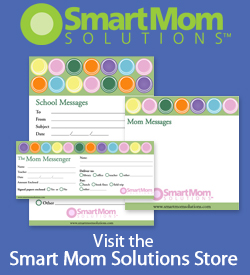By the time you get home, you are happy to see your kids, and they are happy to see you – this is my favorite time of the day! However, soon thereafter is when your child wants your time as you’re trying to decompress from the day, get dinner ready, get through homework, and get ready for the next day. Sigh, the beginning of your second shift!
Well, I’m sure you struggle with trying to create a positive environment that doesn’t include constant re-direction, asking once, twice, three times “Did you finish your homework?” or whatever task needs to be completed. And let’s not forget that sometimes, you need to do all of this while also factoring in evening time activities!
So with all the insanity that goes on each evening, how do you create a positive home environment that makes it so that everyone wants to come home? Well, here are a few ways to do this without needing to plan ahead… well, not too much!
Smile and Say Hello
I know it sounds silly, but once you are home, look your child in the eye, smile, and say hello. If you’re feeling really ambitious, give your child a big hug and kiss (as is age appropriate)! You’re reconnecting with your child after a long break from each other. By doing this, you are non-verbally saying, “ You are important to me and I am happy to see you.” This satisfies your child’s need to be acknowledged by you each and every day.
Before bed, make sure you give your child your uninterrupted attention (that means no multi-tasking!) and say good night. Simple, do-able, and effective!
Discuss the High Points of Your Day
Dinner time discussion is a healthy and safe place to bond with your family members and talk about your day. Ask the question, “What was the best/favorite/highest point of your day today?” All family members are encouraged to answer that question. If you would like, also ask the question, “What was your least favorite/worst/lowest point of your day today?” Once again, everyone gets the chance to answer. This will initiate asking questions and engaging each other about time spent apart. As a parent, this gives you an idea of your child’s strengths and struggles during the day. This will help you to ask more specific questions or gain information from your child’s teacher if you are hearing a consistent complaint about a relationship with another child, a class subject, or whatever!
Please and Thank You
Manners, manners, who doesn’t love manners? We all insist that our children use their manners, but are we, as the adults, also using our manners? Our children learn to interact with each other, their friends, and with us by watching us. So, next time Mommy or Daddy speak with each other, make sure to say ‘please,’ and ‘thank you’ for helping each other out!
These are small changes you can make to your daily routine to help make your home environment a positive one!
About the Author:
Dr. Liz Matheis is a clinical psychologist and school psychologist in Parsippany, NJ who provides assessment, psychotherapy, consulting, and advocacy for children and families managing autism spectrum disorders, ADHD and learning disabilities (www.psychconsult.weebly.com). She is also a contributor to several popular press magazines.


